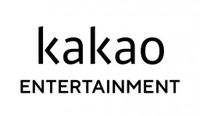Kakao is reportedly moving forward with plans to sell its management rights in Kakao Entertainment, a significant shift from its previous strategy of pursuing an initial public offering (IPO). On April 8, 2025, the company sent letters to major shareholders indicating its intent to divest.
Kakao currently holds a 66.03% stake in Kakao Entertainment, making it the largest shareholder. Other significant stakeholders include Affinity Equity Partners, which owns approximately 12%, Saudi Arabia's Public Investment Fund (PIF) with 5.1%, and Tencent from China, holding around 4.5% of the shares. This restructuring comes as Kakao Entertainment has faced challenges in the market.
Initially, Kakao Entertainment aimed for an IPO since its early days as Kakao Page in 2019. However, plans for a public listing were derailed due to controversies surrounding potential market manipulation and a slowdown in the content industry, which has impacted profitability. The company’s revenue from the content division fell by 1% over the past year, totaling 3.0971 trillion won.
Industry analysts suggest that the decision to sell management rights is influenced by a belief that a proper valuation through an IPO is unlikely in the current stock market climate. Additionally, the ongoing legal troubles of key executives, including former CEO Kim Beom-su, related to the acquisition of SM Entertainment, have further complicated Kakao’s position.
In recent months, Kakao Entertainment has been actively selling off subsidiaries as part of a broader strategy to improve its financial health. This includes the sale of its webtoon and web novel production subsidiary, Next Level Studios, to another domestic content company earlier this year. Next Level is known for popular web novels, including "Art High School and the Musical Genius Paganini." The sale of this subsidiary is seen as a move to streamline operations and bolster profitability.
Furthermore, Kakao Entertainment sold iST Entertainment, a music IP investment company, to Beyond Music for 26.7 billion won. This company was formed in 2021 through the merger of Kakao Entertainment's music label subsidiaries, Play M Entertainment and Cracker Entertainment.
In February 2025, Kakao Entertainment also divested its management rights in ScriWaico Production, home to the popular idol group 'QWER', selling 50.07% of its stake to Nova Entertainment for 8.7 billion won. These sales are part of a strategy to strengthen the company’s profitability after experiencing significant losses in several subsidiaries.
Kakao Entertainment's aggressive expansion through mergers and acquisitions in recent years has led to a substantial increase in the number of its subsidiaries, growing from 14 in 2020 to 53 by 2022. However, the performance of some acquired companies has deteriorated, which has hindered overall growth. For instance, Next Level recorded net losses of 1.5 billion won in 2023 and 1.4 billion won the previous year, while iST Entertainment and ScriWaico Production reported net losses of 4.6 billion won and 1 billion won, respectively, last year.
This financial strain has led to an increase in Kakao Entertainment's net debt, which surged from 667 billion won at the end of 2020 to 655 billion won by the end of 2021. Recent divestitures have begun to alleviate this burden, with net debt decreasing to 347 billion won as of the end of last year.
Despite these challenges, there are indications that Kakao Entertainment may still pursue an IPO in the future. The company previously selected NH Investment & Securities and KB Securities as underwriters for its IPO in 2019. In 2021, Kakao Page merged with Kakao M, which operates the popular music service Melon, to form Kakao Entertainment, a move aimed at enhancing its market value.
However, the IPO efforts were stalled due to various controversies, including those related to the split listings of other subsidiaries like Kakao Pay. As Kakao Entertainment continues to navigate these turbulent waters, the focus appears to be shifting towards stabilizing its financial standing through strategic sales and restructuring.
In conclusion, Kakao's decision to sell management rights in Kakao Entertainment reflects broader trends in the content industry and the company's efforts to adapt to a challenging market environment. As the company seeks to streamline operations and improve profitability, the future of Kakao Entertainment remains uncertain but filled with potential possibilities for transformation.







